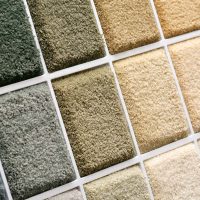 Flooring choices vary widely according to personal taste, but pet owners have a whole new set of challenges to consider. Pets oblige us to consider staining, scratching, shedding, and other potential problems.
Flooring choices vary widely according to personal taste, but pet owners have a whole new set of challenges to consider. Pets oblige us to consider staining, scratching, shedding, and other potential problems.
Don’t despair! It’s entirely possible to install a beautiful floor and keep it that way without banishing your pets to the backyard. When homeowners who also have pets, these factors become essential when picking out a new floor:
* Scratch Resistance: Many types of pets, particularly dogs of certain breeds, have nails that are both long and sharp. This can lead to floor damage, especially with a large, rambunctious dog. For a flooring material to be considered pet-friendly, it needs to stand up well to scratch damage.
* Stain Resistance: A resistance to stains is important for any floor that will accommodate pets. Young pets who have yet to go through house training are an issue, but even the most well-trained pet may have an occasional accident.
* Comfort And Safety For Pets: Your flooring choice isn’t just about protecting your floors from your pets; the reverse is also worth considering. Pets need flooring that offers them adequate traction. Without it, they could slip, fall, and even injure themselves.
1) Bamboo Floors
Bamboo is a very dense, hard flooring choice. This makes it great for standing up to the heaviest pets, like large dogs. Where bamboo comes up short is in scratch resistance. Pet owners who install bamboo flooring may see extensive, unattractive scratching and denting within a few years.
2) Vinyl Floors
Vinyl is one of our favorite options for pet-friendly floors. Vinyl flooring is rugged, affordable, needs minimal maintenance, and comes in a wide range of appearances. When it comes to pets, vinyl stands out by being exceptionally scratch-resistant. Even large dogs with long nails will struggle to do significant damage to a vinyl floor.
3) Hardwood Floors
While hardwood flooring is a perennial favorite among resale-value-minded homeowners, we strongly caution pet owners to think carefully before installing lots of hardwood. Hardwood does not resist the sort of wear and tear applied by pets very well. These types of floors are also vulnerable to staining, particularly in areas where they are repeatedly exposed to spills.
4) Laminate Floors
Laminate flooring is a synthetic product designed to imitate the appearance of more natural materials — usually wood, but sometimes stone or tile. Laminate flooring is an excellent alternative to hardwood for pet owners. It stands up to spills and nail scratches much better than natural wood. A home with laminate floors will do a good job resisting the potential damage of even the largest, most active pets.
5) Carpet/Carpet Tiles
Most pet owners know all too well how much of a hassle results from combining pets with carpeted floors. Carpet captures pet hair and dander, wears out quickly, stains easily, and requires frequent, laborious cleaning. Carpeted floors can be a problematic choice for any home, but in homes with pets, carpets are a disaster waiting to happen.
6) Cork Floors
Cork flooring is a sustainable, environmentally-friendly product, like bamboo. Pet owners report much higher levels of satisfaction with cork floors, though, because this material is much better at resisting scratches and standing up to the rigors of pet traffic. As a bonus, cork flooring is hypoallergenic and has antibacterial properties, encouraging a healthier home for both two and four-legged family members.
7) Stone Floors
Natural stone is one of your most expensive flooring options, but it’s worth considering if you have pets. Most forms of stone tile are practically impossible for pets to damage, even the biggest dogs with the sharpest nails. Stone floors are similarly immune to stain and spill damage. Liquids are easily mopped away, leaving behind no long-term damage at all. Stone floors — provided they offer adequate traction — are more or less ideal for pet owners.
8) Ceramic And Porcelain Tiles
Tile floors offer most of the same appealing benefits as natural stone at a much more affordable price. They resist scratches very well and turn away liquid spills effortlessly. It’s no accident that you typically see tile flooring used in bathrooms and kitchens — the rooms where spills are most likely. Tiles are slightly less durable than stone, and some finishes may give pets traction problems. But a pet-friendly tile floor is well within most homeowners’ budgets.
Contact us today to see what options will work best for you.

